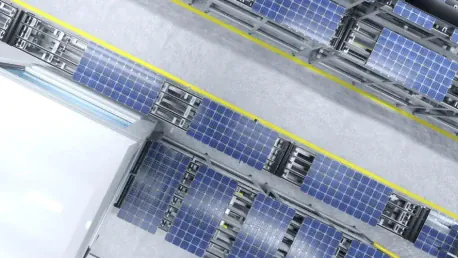Jindal India Renewable Energy, a pioneering division of the BC Jindal Group, has announced significant plans to enter the rapidly expanding battery energy storage systems (BESS) sector. The company revealed it will establish a one gigawatt-hour (GWh) battery pack assembly line using lithium iron phosphate (LFP) technology by 2025. Additionally, by 2027, Jindal aims to venture into battery cell production with a projected capacity of five GWh. This strategic move is part of a larger initiative to bolster India’s status as a key player in the global renewable energy market, which is currently enjoying robust growth fueled by supportive policies for green energy.
Importance of Battery Energy Storage Systems
Ensuring Power Grid Stability
Battery energy storage systems are becoming increasingly critical for maintaining the stability of power grids, especially as the share of renewable energy sources like solar and wind grows. These intermittent energy sources pose challenges for grid stability due to their variable nature. By investing in BESS, Jindal India Renewable Energy aims to smooth out these fluctuations and ensure a more stable and reliable electricity supply. Director Punit Gupta explained that the investment would not only diversify the company’s portfolio but also play a vital role in enhancing grid stability and facilitating the integration of renewable sources.
These energy storage solutions are pivotal during peak demand periods, where the supply from renewable sources may not be sufficient to meet the high electricity demands. BESS can store excess energy produced during low-demand periods and release it when demand spikes, thus balancing the supply and demand dynamics efficiently. This capability is essential in avoiding blackouts and ensuring a continuous supply of electricity. Consequently, Jindal’s commitment to BESS is a strategic maneuver to address these pressing issues and contribute towards a resilient and sustainable energy infrastructure.
Market Growth and Technological Collaboration
The Indian battery energy storage systems market is on a robust growth trajectory, projected to expand at a compound annual growth rate (CAGR) of 11.41% through 2032. This promising market potential underscores the critical need and demand for efficient energy storage solutions in the country. Recognizing this opportunity, Jindal India Renewable Energy has forged a technological partnership with a leading global provider, which will be instrumental in achieving its ambitious goals in the BESS sector. Technological collaboration is essential in this field as it brings together global expertise and local implementation, facilitating faster and more effective deployment of advanced energy storage systems.
The partnership aims to leverage cutting-edge technology to develop state-of-the-art battery packs and cells that offer high efficiency, durability, and cost-effectiveness. The global provider will bring its expertise in battery technology, while Jindal will utilize its local market knowledge and infrastructure to scale production and implementation. This collaborative approach not only accelerates innovation but also ensures that the energy storage solutions meet the specific needs and challenges of the Indian market. Overall, this technological alliance reflects Jindal’s commitment to excellence and its strategic vision for sustainable growth in the renewable energy sector.
Strategic Direction and Market Positioning
Expanding Renewable Energy Portfolio
As part of its broader strategy, Jindal India Renewable Energy is focused on expanding its renewable energy portfolio, emphasizing innovation and sustainability. The company’s entry into the BESS market is a natural extension of its efforts to promote green energy initiatives. By establishing a robust battery pack assembly line and venturing into cell production, Jindal aims to create a comprehensive energy storage ecosystem that complements its existing renewable energy assets. This integrated approach will enable the company to offer end-to-end solutions, from energy generation to storage and distribution, thereby enhancing its market positioning.
The move also aligns with national goals to increase the adoption of renewable energy and reduce dependence on fossil fuels. India’s government has been proactive in implementing policies that encourage the development and integration of renewable energy solutions. These policies provide financial incentives, subsidies, and regulatory support, creating a favorable environment for companies like Jindal to invest and expand in the renewable energy sector. By leveraging these supportive measures, Jindal is well-positioned to capitalize on the growing demand for clean energy and contribute to the country’s energy transition goals.
Future Outlook and Industry Impact
Jindal India Renewable Energy, a leading division of the BC Jindal Group, has unveiled substantial plans to dive into the burgeoning battery energy storage systems (BESS) market. The company has announced it will set up a battery pack assembly line with a capacity of one gigawatt-hour (GWh) utilizing lithium iron phosphate (LFP) technology by 2025. Furthermore, Jindal aims to expand into battery cell production by 2027, targeting a capacity of five GWh. This strategic move is part of a broader effort to strengthen India’s position as a significant player in the international renewable energy sector, which is currently benefiting from strong growth and supportive policies favoring green energy. By investing in advanced energy storage solutions, Jindal hopes to address the increasing demand for reliable and sustainable energy sources. These initiatives are aligned with the global push towards cleaner energy alternatives and are expected to contribute significantly to the renewable energy industry’s development both in India and worldwide.









